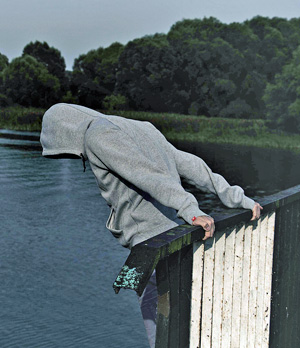Choosing when to call it quits
 Addiction does not discriminate between age, gender, economic status or race. Each individual can decide where their “rock bottom lies”. Do you really need to wait until you have lost your job, ruined your relationship, abused friends, become estranged from your children or live on the streets in a state of intermittent psychosis?
Addiction does not discriminate between age, gender, economic status or race. Each individual can decide where their “rock bottom lies”. Do you really need to wait until you have lost your job, ruined your relationship, abused friends, become estranged from your children or live on the streets in a state of intermittent psychosis?
There are in fact many functioning individuals medicating stress, loneliness, depression, social anxiety, sexual inhibition and general anxiety with alcohol and drugs. Often, people don’t realise that depression, anxiety, anger, sexual and relationships issues in the aftermath of alcohol or drug binges are a consequence of using. In fact using alcohol to cover over anxiety or depression simply creates more anxiety and depression.
Do I have an alcohol or drug problem?
If you continue to drink or drug despite negative consequences, then you may have problematic alcohol use.
- Fighting with your partner over your use?
- Ended up in bed with that Bumble/Tinder/Grindr guy/gal that you didn’t really like?
- Can’t remember where you lost your phone and wallet?
- Had yet another stupid argument with your friend that you can’t even remember?
- Spent 3 days depressed and hung-over in work again?
- Drove home drunk again?
- Frequently drink more than you intend to?
AA is not for everyone
Alcoholics Anonymous (AA) and Narcotics Anonymous (NA) are an organisation that runs over 460 groups with 4,000 members across New Zealand. Membership is open to anyone with a desire to stop drinking and there are no fees or dues. AA has successfully helped many people sustain sobriety and a list of weekly meetings can be found on AA.org.nz.
However, AA is not for everyone. Some individuals recognise that they might have a problem and tentatively go along to an AA 12-step meeting. However, they find that there is so much talk about alcohol and drugs that it creates intense cravings. Others reject the affirmation and label “I am an alcoholic” as it may create a shameful negative self-concept and social stigma. Others reject AA requirements to admit they are powerless over alcohol as this can create a sense of helplessness and doubt that they are capable of controlling their own choices and behaviours. Others cannot relate to the severity of many rock bottom stories because they only drink one bottle of wine after work every day or are high functioning executives. Others find excessive talk of drinking woes depressing.
Many paths to recovery
Many people do not realise that there are alternatives to 12-step recovery such as Community Alcohol and Drugs Services (CADS), Buddhist Refuge Recovery, Moderation Management and Smart Recovery in addition to or as an alternative to traditional counselling approaches and residential rehab. CADS offers a professionally run harm reduction approach and a desire for abstinence is not a requirement for joining. SMART Recovery and Moderation Management offer a peer support group model and surrendering your power is not a requirement.
Individual therapy
If you are serious about quitting or reducing drinking / drugging, then individual therapy may be the best option as it can be customised to your unique needs and a time can be arranged that works for you with minimal impact on family and working life. When selecting a therapist, useful things to consider are:
- Do they have rehabilitation facility experience?
- Do they have specialised addiction training?
- Is it easy to establish a good rapport with them?
- Are they trained in modalities such as hypnotherapy, CBT, DBT, psychotherapy and motivational interviewing?
Reconnecting
If alcohol has impacted your relationship, or relationships have been historically difficult, then it may be useful to also consider choosing a therapist experienced in relationship counselling as relationship issues can be a major contributor to relapse. In his TED Talk titled “Everything you think you know about addiction is wrong”, journalist and researcher Johann Hari states that the opposite of addiction is not sobriety but connection. Renowned addiction author and physician Gabor Maté’s approach to addiction focuses on the trauma clients have suffered and look to address this in their recovery. If you feel that your drinking or drugging may be associated with anxiety, depression, intimacy or trauma, then customised individual 1:1 professional counselling maybe more effective than group counselling.
Getting help
The good news is with an experienced clinical hypnotherapist, addiction, and relationship counsellor, clients can see significant improvements in just 6 sessions. Individual counselling and clinical hypnotherapy can work directly to access the root of the problem. This helps to eliminate unwanted negative beliefs and reinforcing more positive, happier thoughts and feelings. Sessions typically cover depression, anxiety, confidence building, stress management, root cause analysis, strategies for dealing with cravings and others who use, relapse prevention planning, sober relationships, the disclosure of alcohol problems and family therapy.
Find a Therapist
 Margo Regan Counsellor, Clinical Hypnotherapist, Addiction, Relationship & Sex Therapist, (Ponsonby & Sylvia Park) has particular interest and experience in working with addiction issues. She is part of our Citywide team of accreditted addiction counsellors. For more information or to arrange an appointment please contact Margo or any of the team.
Margo Regan Counsellor, Clinical Hypnotherapist, Addiction, Relationship & Sex Therapist, (Ponsonby & Sylvia Park) has particular interest and experience in working with addiction issues. She is part of our Citywide team of accreditted addiction counsellors. For more information or to arrange an appointment please contact Margo or any of the team.
Addictions Counselling Auckland
An experienced group of accredited addiction cousellors offering counselling services citywide in Auckland. Find an Auckland Addiction Counsellor by suburb or learn more about the Issues with work with.
Follow us on Facebook

